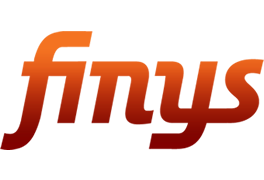The Great Awakening
P&C Specialist recently published an article that gave us pause. The title of the article is “Insurers Struggle to Keep Staff Connected, Engaged“. In case you haven’t yet subscribed to P&C Specialist, this is the part that caught our attention:
With the new world of remote and hybrid work, many employers are struggling to boost employee connections and engagement as they strive to attract and retain talent … Judy Busby, senior vice president of executive search and corporate strategy at Chicago-based insurance recruiting firm The Jacobson Group, [said] “It’s harder for all of us to know how to engage our team” because most employees aren’t working from the office five days a week … “People want to work for companies where they have friends” … That triggered the great realization, great reassessment and great restlessness, leading up to the great resignation … It also has fueled “quiet quitting,” where employees do the minimum amount of work required and are psychologically detached from their jobs.
A number of things warrant comment here. We’ll take them in order.
From the Top
First, since we’re headed into the third year of COVID-19’s influence (actually, the fourth, if you count the fact that the novel coronavirus originated in 2019), we’re not sure remote and hybrid work any longer constitute a new world. While opinions about and preferences for remote, hybrid, and return-to-office work will remain forever divided, most organizations have figured it out by now. And if it’s harder for all of us to know how to engage our team, that means there’s a little more figuring out to do.
Second, people want to work for companies where they have friends. Well, yes. But there are a couple of other things to consider: (1) If you work remotely, you can still have friends, work with them, and communicate with them in any number of ways about work or anything else. (2) The larger the company in which you work, the more likely you are to meet folks with whom you become friends. Others? Not so much.
Third, the great realization and the great reassessment were inevitable. The great restlessness was already upon us. COVID just shortened the fuse. And the great resignation is more like the great realignment or The Great Awakening. Given how many people were likely less than satisfied with their jobs, the COVID lockdown was an overdue opportunity to take stock, to re-assess, to place different values on our lives and our time, and to make different choices. And that brings us to …
Fourth, quiet quitting is just a new name for an old phenomenon. Slacking off. Dragging your feet. Sleepwalking. Going through the motions. Phoning it in. Call it what you like. Operating at less than peak performance and psychological detachment are as old as humanity.
The New Normals
No. There isn’t a typo in that subhead. There are two new normals. They’ve actually been around forever, too, like operating at less than peak performance and psychological detachment. But thanks to COVID, we’re now more aware of them and painfully so. The new normals are change and uncertainty. That means The Great Awakening isn’t a one-time event. It’s necessarily ongoing, evolving, and unpredictable. We can evolve with it — embrace it, roll with it, and learn to make the most of it — or not.
The choice is ours … and yours.





Leave a Reply
Want to join the discussion?Feel free to contribute!